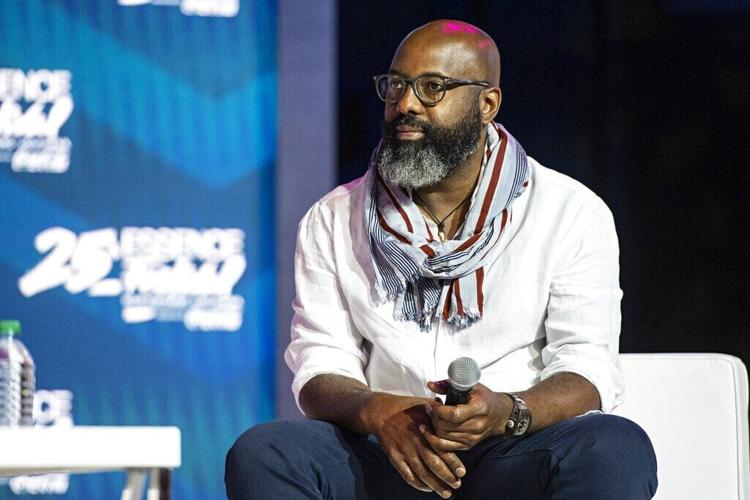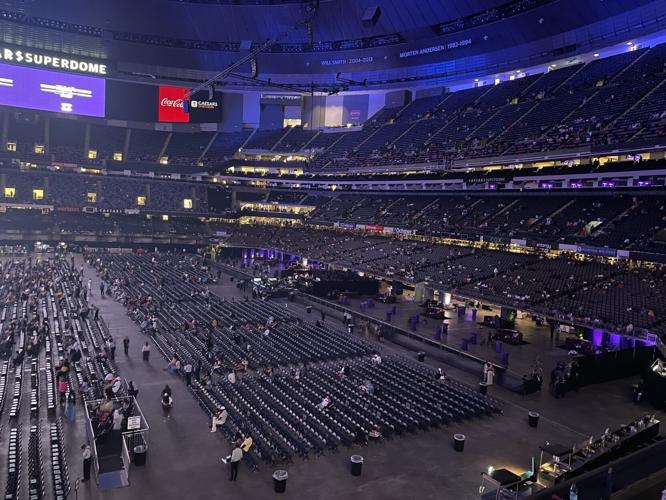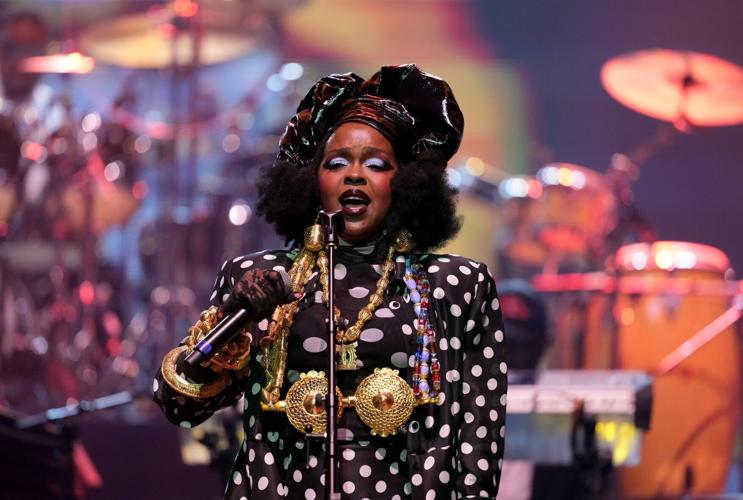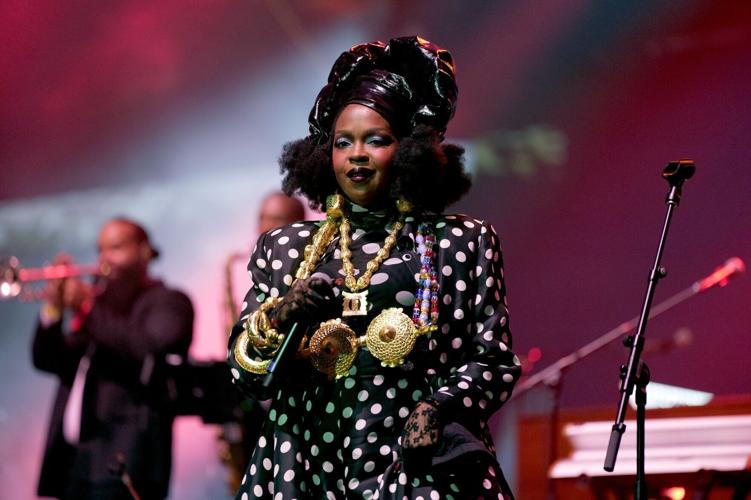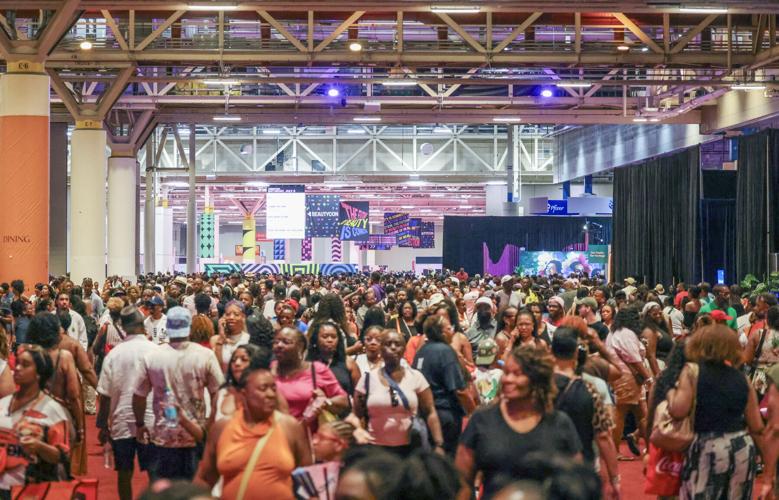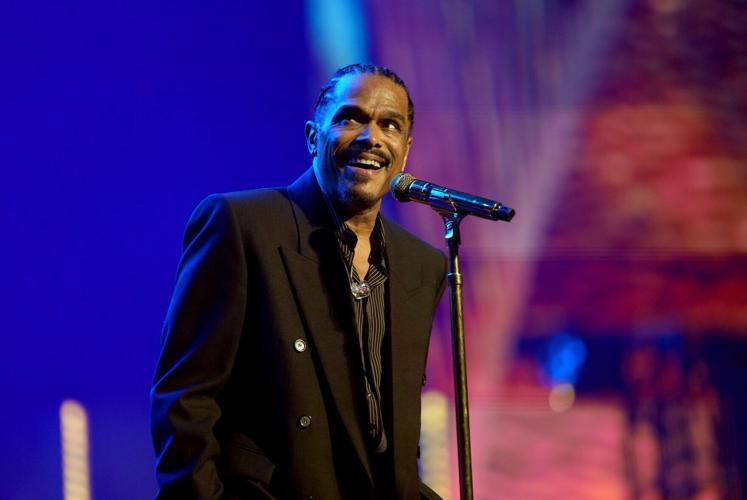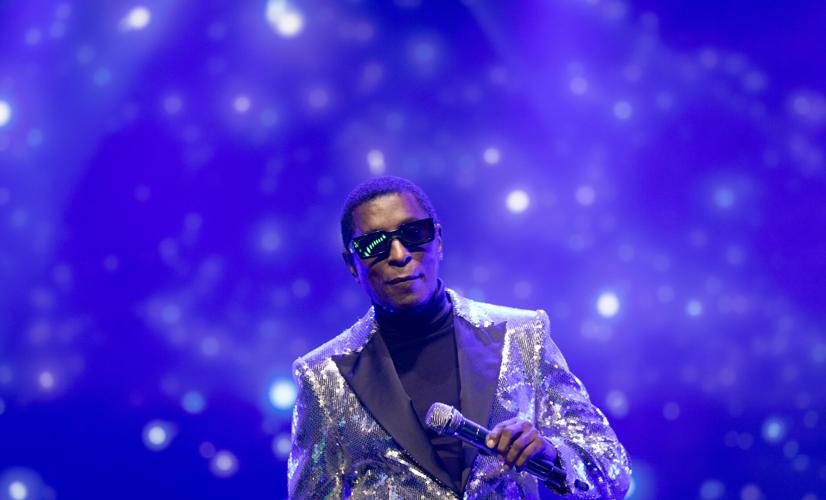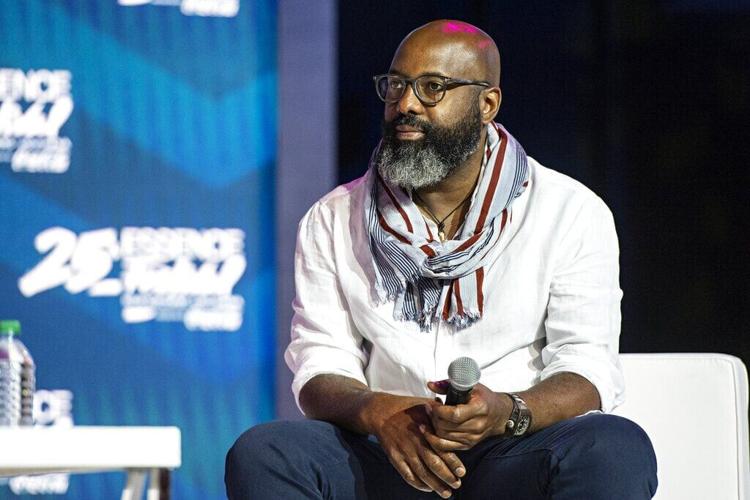The Essence Festival of Culture was birthed by New Orleans, in New Orleans, and through New Orleans it reached the nation and the world.
I grew up in the Lower 9th Ward and Gentilly with Ebony and Jet on my family's living room tables, along with the Louisiana Weekly and The Times-Picayune. They were an important part of keeping up with our Black people, businesses, communities, entertainment and all things Black.
But something was missing.
In 1970, Essence magazine was launched. I was a teen then. A Black mother birthed me, I had two Black sisters, Black girl and women cousins, Black grandmothers and Black girlfriends. They were captured in some of the pages of the other periodicals, but Essence highlighted my collective sisters with beauty, fashion and news — through a Black prism. We didn't realize what we had been missing.

Thousands of people walk inside the New Orleans Ernest N. Morial Convention Center during ESSENCE Festival of Culture in New Orleans, Saturday, July 5, 2025. (Photo by Sophia Germer, The Times-Picayune)
The magazine celebrated 25 years of success in 1995, and a one-time celebration in New Orleans was planned with then-Mayor Marc Morial. As we said back in the day, it was so nice, they had to do it twice. Then again. And again. And it's still going.
There have been challenges through the years. And this year felt different. There weren't as many signs promoting the festival. The big Essence letters were missing outside the convention center. There were long waits in between entertainment acts at night. One act didn't finish until 3:37 a.m. Saturday. There were hurt feelings with fans who were expecting a traditional Superlounge experience, only to find that things had changed. Essence apologized.

Kenneth "Babyface" Edmonds sings at the ESSENCE Festival of Culture at the Caesars Superdome in New Orleans on Friday, July 4, 2025. (Photo by Chris Granger, The Times-Picayune)
Essence fans and supporters have had concerns, and they've let Essence and others know.
U.S. Rep. Troy Carter, home from his duties in Washington, D.C., attended the festival and got an earful. "I have been there since Day One," he told me. "I was a young City Council member when Marc Morial brought this to our city." He said things have changed and he doesn't like what he's heard this year.
Essence is important to New Orleans and Louisiana, he said, and the festival cannot disconnect from its New Orleans-specific cultural roots. That means engaging local businesses and staying connected with our local culture, he added. "Recognizing that this year things were out of whack, and there were a few hiccups," the congressman said it's important to learn from these lessons, these mistakes and move beyond 2025.
One high-profile nonprofit executive told me that it's too difficult to do business with Essence now, and that's why there are a number of "Essence-inspired," "Essence-related" and "Essence-adjacent" events not connected with the festival.
"I'm confident that the leaders of Essence are going to hear what their fans and customers are saying about the experience, and I certainly urge them to hear and take heed to forever be on the side of making Essence better," added Morial, the president and CEO of the National Urban League for more than 20 years. "The historic team had built relationships with the leadership and the community ... from the beginning ... I think the new leadership of Essence ... have to think anew about how they build and rebuild some of those relationships — and I believe (Essence Ventures owner) Richelieu Dennis is committed to that."
During a Morial Convention Center festival conversation Saturday afternoon, Dennis told me he is committed to making Essence better. He told me his company is in the third year of a five-year plan and they're making decisions based on data and business planning. There has been negative festival chatter in hotel and venue hallways and rooms, among family and friends texting and in quite a number of negative social media posts. But Dennis said that's not the whole story.
He acknowledged some problems, attributing them to growing pains. "We've grown this festival almost twice its size," he said. "With that growth comes a lot of changes, challenges." He said real-time data collected during this year's festival shows festival-goers are more engaged and more satisfied. People are staying at the daytime festival events longer. There were complaints about not being able to get into some scheduled events, including film festival showings. He charges that to quality programming. People can't show up and expect to get in the door. "It's a thing of effectiveness, efficiency and delivering on a promise," he said.
Through the years, things have changed. "The" Jet is gone. Ebony is a shadow of what it was. Essence is still here.
New Orleans has Carnival, second-line and other traditions that will live on forever. But the city isn't what it was when I was growing up. There are parades, krewes and festivals that didn't exist.
The festival isn't what it used to be. Nor should it be. But it is an important part of New Orleans that we want to see thrive.
While some say the festival has lost its luster, Dennis says the festival will never lose its foundational purpose, but it must evolve.
The question for New Orleans and Dennis is, can we get through these changes and evolve together?
The answer is easy: Like real love in committed relationships, we must.

